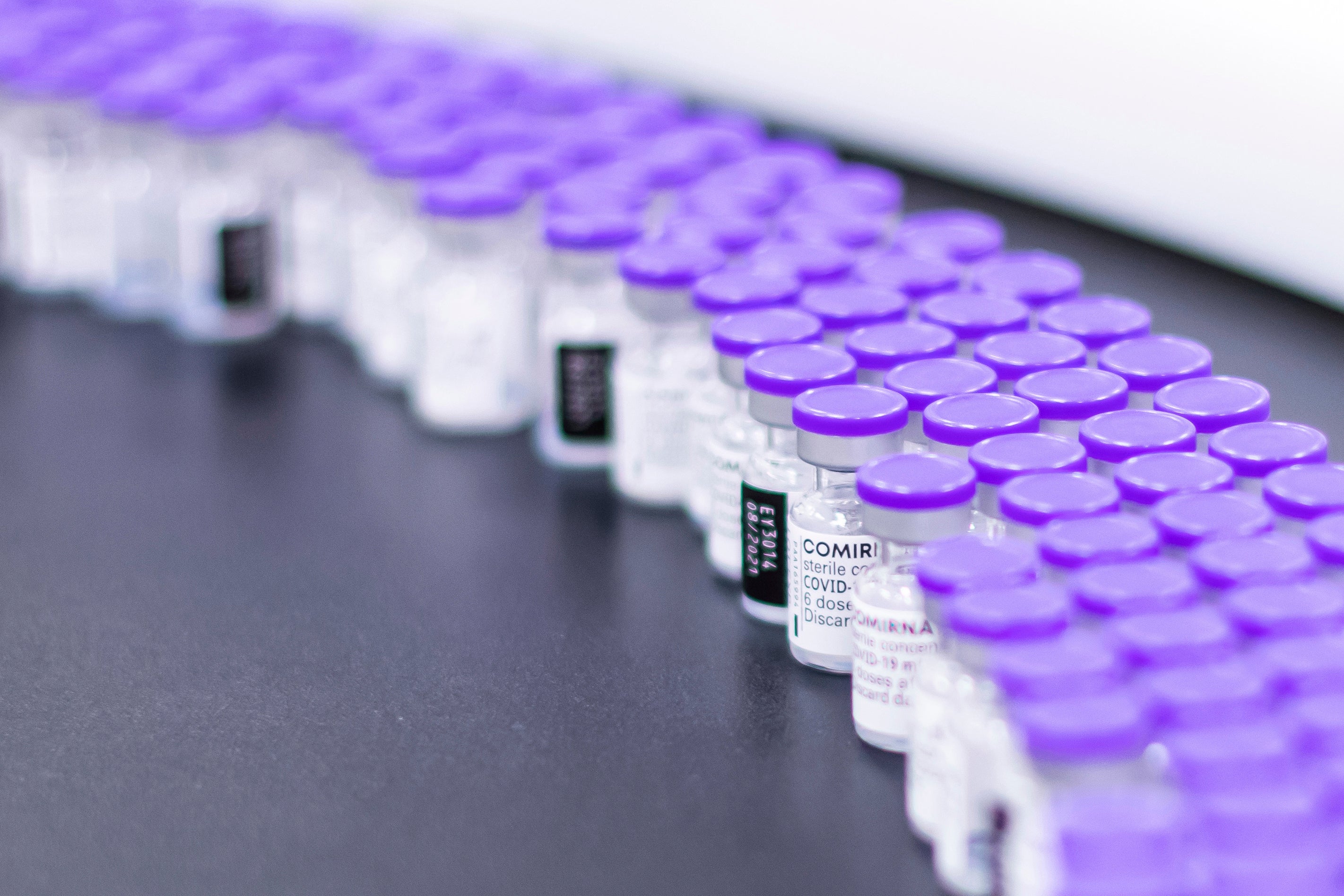Covid carries ‘far higher’ risk of clots than vaccine, study finds
Research is largest scale study into vaccine side effects so far

Your support helps us to tell the story
From reproductive rights to climate change to Big Tech, The Independent is on the ground when the story is developing. Whether it's investigating the financials of Elon Musk's pro-Trump PAC or producing our latest documentary, 'The A Word', which shines a light on the American women fighting for reproductive rights, we know how important it is to parse out the facts from the messaging.
At such a critical moment in US history, we need reporters on the ground. Your donation allows us to keep sending journalists to speak to both sides of the story.
The Independent is trusted by Americans across the entire political spectrum. And unlike many other quality news outlets, we choose not to lock Americans out of our reporting and analysis with paywalls. We believe quality journalism should be available to everyone, paid for by those who can afford it.
Your support makes all the difference.The increased risk of blood clots in patients with Covid-19 is almost nine times higher than that involved with vaccination, a large scale study has found.
The scientists said their research, which compares the AstraZeneca and Pfizer vaccines with risks from Covid-19, is the biggest study on vaccine side effects to date.
The paper, which examined more than 29 million people aged 16 or older who had a first vaccine dose in England between December and April, found the risk of thrombocytopenia is nearly nine times higher in coronavirus patients than in a person who has received one dose of the AstraZeneca jab. Thrombocytopenia is a condition where the patient has a low platelet count, helping blood clots form.
The scientists estimated that in 10 million people vaccinated with the AstraZeneca jab, there would be 107 additional cases of thrombocytopenia in the 28 days following vaccination, compared with 934 in people with the coronavirus.
Prof Aziz Sheikh, one of the researchers involved in the study, said the heightened risk of thrombocytopenia observed is comparable to vaccines such as the flu jab.
In addition, an estimated seven additional cases of cerebral venous sinus thrombosis (CVST) – a condition where a blood clot forms in the brain – were recorded per 10 million people who received the AstraZeneca jab, compared with 20 in Covid-19 patients. For blood clotting in a vein, the rate was 66 excess cases per 10 million, compared with 12,614 excess events in those with Covid.
Meanwhile, while the increased risk of stroke in Covid-19 patients is nine times higher than that observed following vaccination with Pfizer’s vaccine. There were an estimated 143 extra cases of ischaemic stroke per 10 million people with Pfizer, compared with 1,699 cases in coronavirus patients. No link was founded between AstraZeneca and increased stroke risk, or Pfizer with increased risk of thrombocytopenia.
Researchers found no associations with blood clots in an artery for either jab. In contrast, there were around 5,000 excess events per 10 million people infected with Covid.
Furthermore, the increased risks involved with vaccination lasted for a shorter time period than the risks involved with coronavirus infection. Prof Julia Hippisley-Cox, professor of clinical epidemiology and general practice at the University of Oxford, said that the increased risk of stroke following a Pfizer jab lasts 15 to 21 days after vaccination, and for thrombocytopenia with the AstraZeneca it is eight to 14 days. This compares with a 28-day period after infection.
Prof Sheikh said the study is important in “contextualising” safety findings “when compared with the risks if you get the infection” which he said other studies have not yet done. The paper, published in the BMJ, was published a day after an inquest heard that BBC radio presenter Lisa Shaw, 44, died due to developing vaccine-induced thrombosis and thrombocytopenia.
Prof Hippisley-Cox said that while Ms Shaw’s case is “very sad”, it was important to remember that “these are very rare cases, and the vast majority of patients will be absolutely fine with these vaccines”. Public Health England estimates that vaccines have so far prevented more than 100,000 deaths.
Join our commenting forum
Join thought-provoking conversations, follow other Independent readers and see their replies
Comments